 Petzlover
Petzlover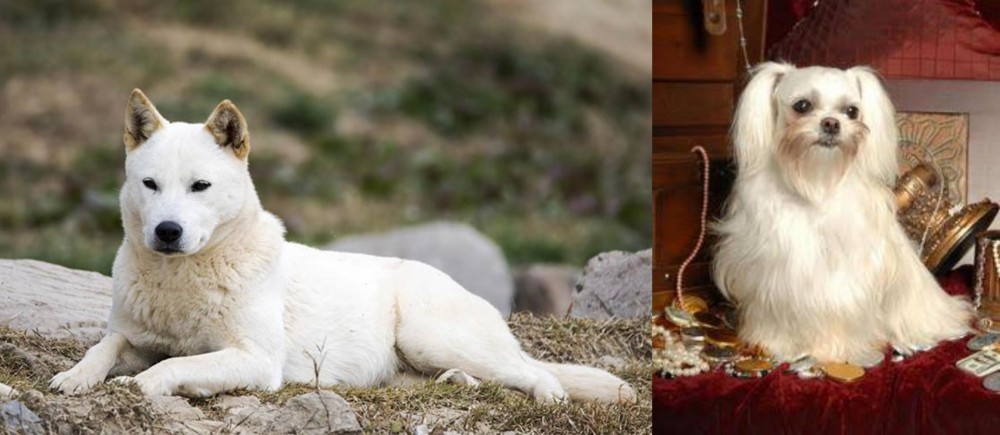 Jindo is originated from South Korea but Toy Mi-Ki is originated from United States. Jindo may grow 35 cm / 14 inches higher than Toy Mi-Ki. Jindo may weigh 18 kg / 40 pounds more than Toy Mi-Ki. Both Jindo and Toy Mi-Ki has almost same life span. Jindo may have more litter size than Toy Mi-Ki. Both Jindo and Toy Mi-Ki requires Moderate Maintenance.
Jindo is originated from South Korea but Toy Mi-Ki is originated from United States. Jindo may grow 35 cm / 14 inches higher than Toy Mi-Ki. Jindo may weigh 18 kg / 40 pounds more than Toy Mi-Ki. Both Jindo and Toy Mi-Ki has almost same life span. Jindo may have more litter size than Toy Mi-Ki. Both Jindo and Toy Mi-Ki requires Moderate Maintenance.
 Hailing from Korea, the Jindo dog's name is actually taken from the island Jindo. The dogs lived on the island for thousands of years, developing into a natural breed with good hunting skills.
Hailing from Korea, the Jindo dog's name is actually taken from the island Jindo. The dogs lived on the island for thousands of years, developing into a natural breed with good hunting skills.
They are also known as Jin Dog, Jindo-kae or Jindo-kyon. The exact origins of the Korean Jindo are unknown and it is believed to have been developed from different Mongolian breeds.
They were brought to the United States and been entered into the American Kennel Club.
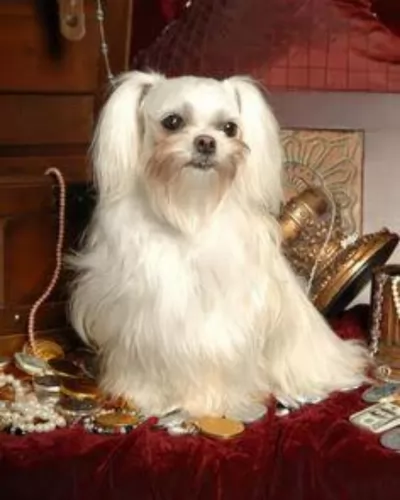 The Toy Mi-Ki is a sociable companion dog. He hasn’t got a long history, and the little bit of history there is, isn’t clear.
The Toy Mi-Ki is a sociable companion dog. He hasn’t got a long history, and the little bit of history there is, isn’t clear.
It is believed that the breed was bought about by Maureen Westburg. It was in the 1980s that she crossed several toy breeds to develop the Mi-Ki. It is thought that she gave the dog the name Mi-Ki because her name was Mikkie. It seems whe wanted a dog that came close to looking like a gremlin.
Some of the dogs used in the breeding program were the Japanese Chin, the Maltese, and the Papillon. The International Miki Registry is trying to get recognition with the United Kennel Club for this dog. There are other canine clubs and organizations that recognize the Mi-Ki Dog as a breed.
 The Jindo is a medium sized spitz-type dog breed which is well-proportioned with erect ears and a long tail which is held over the dog's back.
The Jindo is a medium sized spitz-type dog breed which is well-proportioned with erect ears and a long tail which is held over the dog's back.
He stands at roughly 45 – 65cm and they weigh anything between 11 to 23kg. The coat of the dog is medium length and available in a number of colors – yellow, tan, red, white, brindle, black or bi-color such as black and tan.
When you look at the Jindo you get the impression of bright alertness and intelligence. He makes a great watchdog, and with his bright, alert eyes and upright ears, he just looks like he is on guard.
The Jindo has always been a hunting dog so he has learned to be bold, tenacious and alert. He is also brave, courageous, loving and loyal to his master, but you need to know that he is a dominant dog who will get on well with an owner who is fair, strong, patient, kind and firm.
These dogs are strong willed, independent and dominant as well as being intelligent. He will require socialization and training from an early age. Be fair, firm and consistent with your instructions which he will obey once he has been trained. With training he gets on well with children in the home but he is inclined to have some difficulty with accepting other dogs into the family.
As with any dog breed, the temperament of the Jindo will vary according to the environment he lives in and the type of owners he has. The typical Jindo is an affectionate dog with his human family, being a little bit reserved around strangers.
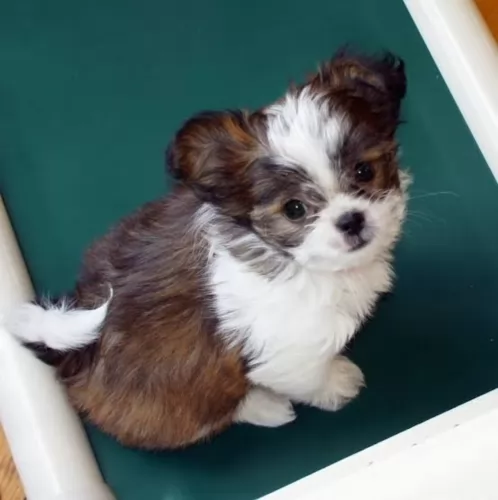 The small Toy Miki stands at between 25 cm – 30 cm in height and weighs between 2 – 5kg. You get two different coat types – long and short and the long-haired variety also has quite a bit of hair around the face.
The small Toy Miki stands at between 25 cm – 30 cm in height and weighs between 2 – 5kg. You get two different coat types – long and short and the long-haired variety also has quite a bit of hair around the face.
His longish coat is low-shedding which makes him popular for people who battle with allergies. The Miki Dog will produce about 2 – 4 puppies.
As a toy dog, he has a domed head with large eyes. Their ears are feathered and are carried erect and the tail is long and feathered.
These little dogs are popular companion dogs and they’re intelligent and loving, making the ideal pet for anyone.
It’s a friendly dog and yet he will bark to alert you of an intruder. Youll take notice because he isn’t the kind of dog that just yaps away.
Children love them and they make great playmates for children who have been taught to be kind and gentle with animals.
Their small size and their adaptable nature make them suitable for city or country living. Sweet and amicable, the social purebred Toy Mi-Ki is everything you want in a companion.
He is loyal and devoted, calm and adaptable. They’re not the kind of dogs to go jogging with you, but nonetheless, he will still need his exercise – walks every day as well as ball games.
 The Jindo makes an awesome pet for owners who enjoy an active lifestyle. A happy, contented Jindo becomes a devoted, loyal pet who wants to guard and protect his owner from strangers, for whom he is wary and reserved.
The Jindo makes an awesome pet for owners who enjoy an active lifestyle. A happy, contented Jindo becomes a devoted, loyal pet who wants to guard and protect his owner from strangers, for whom he is wary and reserved.
He is an intelligent pet too, being easy to train and socialize and while independent, he loves to spend time with his human family and is an all-round excellent pet.
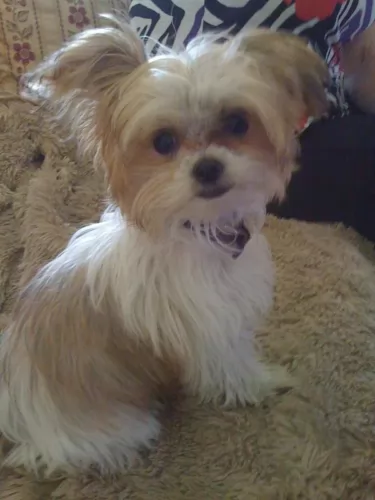 The Mi-Ki is calm and good-natured, and because of his cuteness, he can’t help but become a lap dog, if you allow him.
The Mi-Ki is calm and good-natured, and because of his cuteness, he can’t help but become a lap dog, if you allow him.
He is social and just loves human companionship. He is friendly too and will quite happily be friends with children and pets in the home.
Make sure he is trained and socialized so that you become one of the many people who have nothing but good things to say about this sweet little dog.
 The Korean Jindo dog is looked upon as a generally healthy dog breed with no serious genetic problems to talk about. Look out for eye diseases and dental decay as well as hypothyroidism, a common disease in dogs where you notice deterioration with the coat – thinning, dry and dull.
The Korean Jindo dog is looked upon as a generally healthy dog breed with no serious genetic problems to talk about. Look out for eye diseases and dental decay as well as hypothyroidism, a common disease in dogs where you notice deterioration with the coat – thinning, dry and dull.
The dog’s skin also becomes flaky and you’ll notice that your once energetic pet is now gaining weight and is lethargic. Get him to the vet. Hypothyroidism can be treated simply by your vet to get your pet healthy once again.
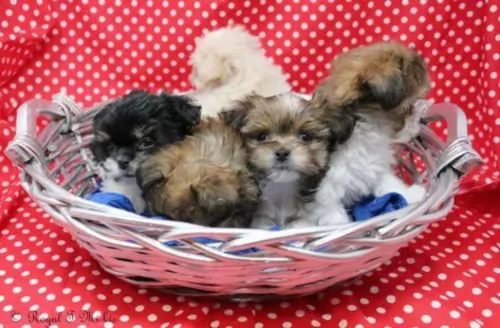 You just have to bear in mind, that because of his short muzzle, he is prone to respiratory problems. Too much exercise and you may find him huffing and puffing. Be careful on a hot day.
You just have to bear in mind, that because of his short muzzle, he is prone to respiratory problems. Too much exercise and you may find him huffing and puffing. Be careful on a hot day.
Also, little dogs like this often have all kinds of dental problems. When you brush him, check his teeth because he can’t tell you if he has a rotten tooth causing him a lot of pain and misery.
Check his eyes too that they are bright and clear and check the inside of his ears. Hypothyroidism and eye issues can also bother the Mi-ki.
 The Jindo has a double coat and this sheds heavily about twice a year, so certainly during these shedding periods you will need to brush his coat twice a week to keep it free from loose hair.
The Jindo has a double coat and this sheds heavily about twice a year, so certainly during these shedding periods you will need to brush his coat twice a week to keep it free from loose hair.
Never just assume that your dog is healthy and happy. When you brush him, check him over for ticks and fleas, check him for any unusual lumps, make sure his nose is wet and that his eyes are bright. Look at the condition of his fur, check his teeth and inside his ears – there are lots of tell-tale signs that can indicate that all is not well with your pet and then you need to get him to the vet.
As a medium-sized breed, if you feed your dog commercially manufactured food, he will require a high quality food that has been formulated for a dog of his size and his activity levels. Mix some home-made cooked chicken, brown rice or pasta as well as vegetables into his kibble and try to include some raw meat in occasionally too. He needs to always have access to fresh, clean water.
The Jindo is a high energy dog, and with his bright face you can tell that he is always ready for action. Long ago he was bred to perform hunting and retrieving type jobs, and with their stamina, they require having a busy day.
They certainly require a significant amount of exercise and mental stimulation, so you will need to include him in your daily walks and give him exciting ball games.
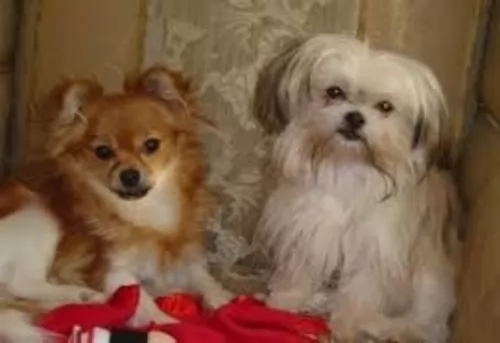 Considered to be low-shedding, the Mi-Ki will benefit from a brush once or twice a week.
Considered to be low-shedding, the Mi-Ki will benefit from a brush once or twice a week.
Some people take their Mi-Ki’s to have their hair professionally cut. This is a good move because then the ears, teeth, and nails are attended to as well.
You can do all of these things at home yourself, but sometimes, particularly with the long-haired Miki, the matting of the hair can make it that you rather send him to professional groomers.
Like all dogs, the Mi-Ki dog will need nutritious food if he is to stay healthy. He isn’t a big eater and you will find the perfect food for your small canine pet.
Read on the packaging to make sure you get high-quality dry food for small dogs. You want the ingredients to be as natural as possible without any toxic colorants and additives.
Meat and protein must always be the top ingredients. Try to provide some home-made food too. Boiled chicken, brown rice, spinach, and sweet potatoes can be chopped up finely and a small portion added occasionally to the dry kibble as a tasty treat.